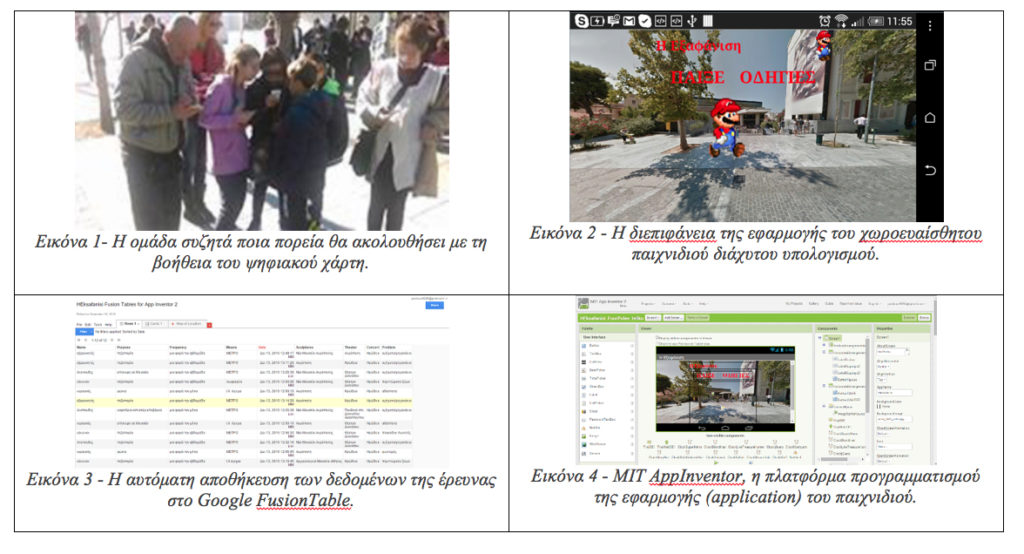Expert: Pantelis Tsolakos, educator
Location: Athens, Greece
Type of workshop: Pervasive location-sensitive educational game
Ages: 11-12 years old
- Description.
The aim of this activity is to engage the participants in exploring specific sites and information connected to them through a combination of the real and the digital world.
The participants move to an important area of the city that was previously unknown. They meet the various aspects of the area (historical, cultural, social, economic) with the help of their portable digital devices, e.g. online videos, web pages, augmented reality. They investigate the human environment (humans and human artifacts) for information mining and they intergrade their discoveries into a shared, custom designed, online game.
According to the scenario of the game, the participants form groups and they are being transformed into private investigators visiting 4 important locations in Athens. These locations are marked as “Gates” and they arrive at them with the help of a digital map and the GPS of their portable digital device. In each “Gate” they have to find information, drawn from the surrounding environment or from the internet or even from communication with others. The information retrieved is then embedded in the digital game in order to conquer the “Gate’ and to proceed to the next stage.
- Background of practice.
The methodologies used for this activity are learning by discovering (exploratory approach), group collaboration, playful learning, field study and Harteveld’s triadic digital game design.
The tools that used are: portable digital devices (tablets, smartphones), Google Drive and FusionTable, MIT AppInventor (Android application programming and development platform for mobile devices), hotspot creation for internet access
- What is being learned-skills developed.
The participants learn:
- historical, cultural, environmental, economic and social elements of the area
- orientation in the city based on digital maps
- cooperation
- conducting research on attitudes and behaviours of others in an open space
- communication with strangers
- problem solving in consultation with the group
- democratic dialogue
- critical thinking and a holistic approach to exploring the attributes of an area
- Successes- Difficulties.
What is considered as a success for this practice:
- the initiative and autonomy that each team took in order to define their strategy, planning and course that they would follow in the game as well as the playful nature of the activity
- the fact that the participants used their devices and applications as a learning tool, indeed accepted by their teacher, and not just as a gaming machine or for daily simple communication
- unlike traditional teaching, all children were actively and continuously involved.
